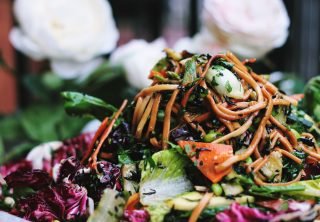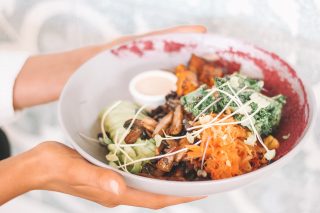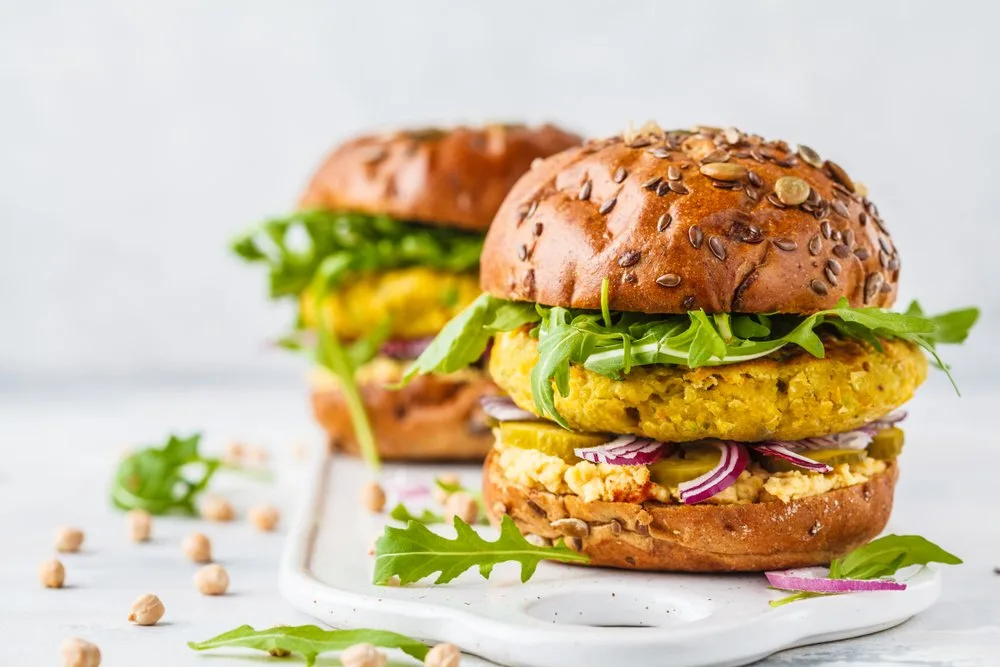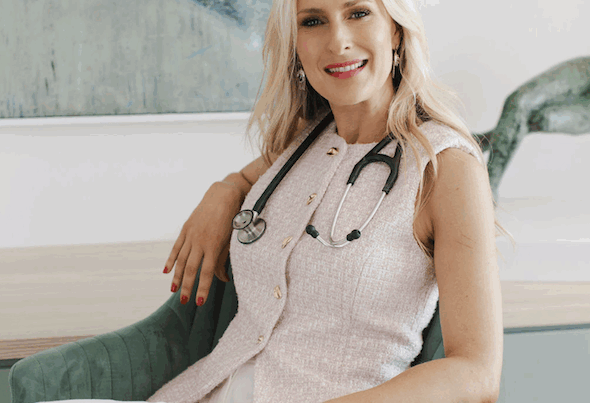As we approach the end of Veganuary, you may be reviewing how much you’ve missed your Sunday morning bacon and eggs or, Friday night cheeseboard. Maybe you haven’t missed meat and cheese as much as you thought and are gearing up to embark on a plant-based diet for the rest of 2021. You may have noted changes in your energy levels, skin, and hair too. Whether it has been a good or bad experience for you personally, well done for seeing the challenge through.
Historically, January has been known as the month of the year for lifestyle changes. As we kicked off 2021, the trends began to build on social media, surrounding ‘New Year, New Me’. Naturally, New Year’s resolutions are never hard to come by and one of the most popular ones to be adopted this month was Veganuary.

Photo by Toa Heftiba on Unsplash
What is Veganuary?
Created by a couple back in 2013 who were active animal rights campaigners, Veganuary is a movement that encourages people to eliminate animal products from their diet for the month of January. The launch of the first Veganuary campaign saw around 3,000 people sign up to test out the vegan diet for themselves and since then, the campaign has grown significantly each year. In fact, 2021 broke the record for signups, with more than 500,000 people committing to take on the 31-day challenge.
With an increase of 497,000 sign-ups over the last seven years, it’s evident that the UK’s interest in veganism is growing and people are continuing to question and change the way they eat. Amongst the 75 million vegans living across the world, stats estimate that 600,000 are UK based. Whilst veganism helps to foster care for the world’s animals and reduce our individual carbon footprint, it can have a profound effect on your lifestyle, including diet and sleep.
Read our guide below, which aims to highlight the importance of choosing a diet to help you feel and sleep well.
Veganism promotes a lower risk of heart disease

Photo by Maddi Bazzocco on Unsplash
It’s widely reported that consuming meat in moderation is good for us. Apparently, it helps to sustain a feeling of fullness and boosts our intake of protein and essential vitamins. However, research shows that eating too much meat can contribute to high cholesterol levels and high blood pressure. It’s, therefore, no surprise that studies suggest that vegans and vegetarians are less likely to suffer from heart disease than omnivores. This is simply due to the fact that vegans are likely to eat fewer fatty foods, which can not only benefit your health but your weight too.
A vegan diet can mean missing out on vital vitamins
While being vegan means reduced consumption of fatty foods, it can also reduce vital vitamins. Although you’re more likely to get your five a day as a vegan, fruit, and vegetables are unable to provide vitamin B12. Instead, this vitamin is found in meat, fish, eggs, and dairy products. Having low vitamin B12 levels can lead to fatigue and numbness which, when untreated, can be irreversible. Nevertheless, those that choose a vegan diet can get their B12 intake from vitamin supplements. This means there is a way you can be vegan and still get all your essential vitamins.
Hone your diet to impact your sleep positively
Luckily for you, whichever path you choose (vegan, vegetarian, pescatarian, omnivore, or carnivore), it’s unlikely it will have a large impact on your sleep. Rather, foods that can cause sleep problems are those that are heavily processed. These foods are often high in sugar, high in salt, and high in carbohydrates. In layman’s terms: junk food. Of course, it’s nice to treat yourself every now and again with a bag of sweets and a bowl of crisps. However, doing this every day can be damaging. It’s best to consume these foods in moderation, where you can. This is because they can cause a false sense of alertness, followed by a bout of tiredness.
The bottom line
Regardless of whether you eat a diet including meat or not, aiming to incorporate fruits & vegetables, whole grains and proteins will mean that you are optimising your chances of having a better night’s sleep.
Who is the author?
Article produced by OTTY, an online bamboo mattress provider offering the UK’s first bamboo memory foam with charcoal-infused layers.
Sources:
- https://www.sleepscore.com/eat-well-sleep-well-how-diet-affects-your-sleep/
- https://www.bbc.com/future/article/20200122-are-there-health-benefits-to-going-vegan
- https://www.vegansociety.com/news/media/statistics
- https://veganbits.com/vegan-demographics/
- https://veganuary.com/veganuary-2021-hits-record-breaking-sign-ups/



![women [longevity live]](https://longevitylive.com/wp-content/uploads/2020/01/photo-of-women-walking-down-the-street-1116984-100x100.jpg)










